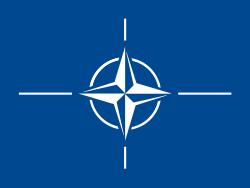
The tariffs, particularly on imports from China and Europe, have increased the cost of many everyday goods. From electronics to automobiles, American citizens are grappling with rising prices, which are putting pressure on household budgets. With inflation already a challenge, the added burden of higher import prices is making life harder for ordinary Americans. As the administration continues to implement its trade war strategy, the political fallout is becoming more apparent. Many voters are beginning to question the benefits of Trump's aggressive tariff policies, especially as their effects on the cost of living become increasingly visible.
At the same time, US defence companies, which rely on international sales to sustain their operations, are facing setbacks. The high-profile F-35 fighter jet, one of the most advanced military aircraft in the world, has been central to Trump’s efforts to expand US military exports. However, the imposition of tariffs on countries like Spain, Switzerland, and India, key markets for these jets, has made it more difficult for American defence firms to secure important deals.
For instance, India, a major purchaser of military technology, is reconsidering its planned purchases of US-made weapons due to the growing tariff dispute. Indian officials have expressed frustration with the administration’s trade policies, which are seen as contradictory to the goal of strengthening defence ties. The situation is compounded by Trump’s strong-arm tactics, which have left many US allies, including European nations, uneasy.
European countries, in particular, are reassessing their relationships with the US. While NATO remains a cornerstone of transatlantic security, many European leaders are becoming disillusioned with Trump's unpredictable approach. The president’s decision to impose tariffs on European steel and aluminium, along with his public criticism of NATO members for not meeting defence spending targets, has strained diplomatic ties. Several European leaders have raised concerns that America's commitment to NATO is becoming less certain, which could have serious implications for the security of the region.
These developments have prompted some European countries to seek alternative partners for defence procurement. In recent months, Spain and Switzerland have both shown interest in diversifying their defence contracts, with some considering the purchase of aircraft and weapons from other suppliers, including Russia. The growing discontent in Europe is creating a new geopolitical dynamic, with some nations now questioning whether they can continue to rely on the US as their primary defence partner.
The situation is particularly concerning for US defence manufacturers, which have traditionally depended on foreign contracts to offset the high costs of developing and producing advanced military technology. The US Department of Defence has already warned that the loss of key contracts could have a significant impact on both the industry and the broader economy, which is heavily reliant on defence spending.
